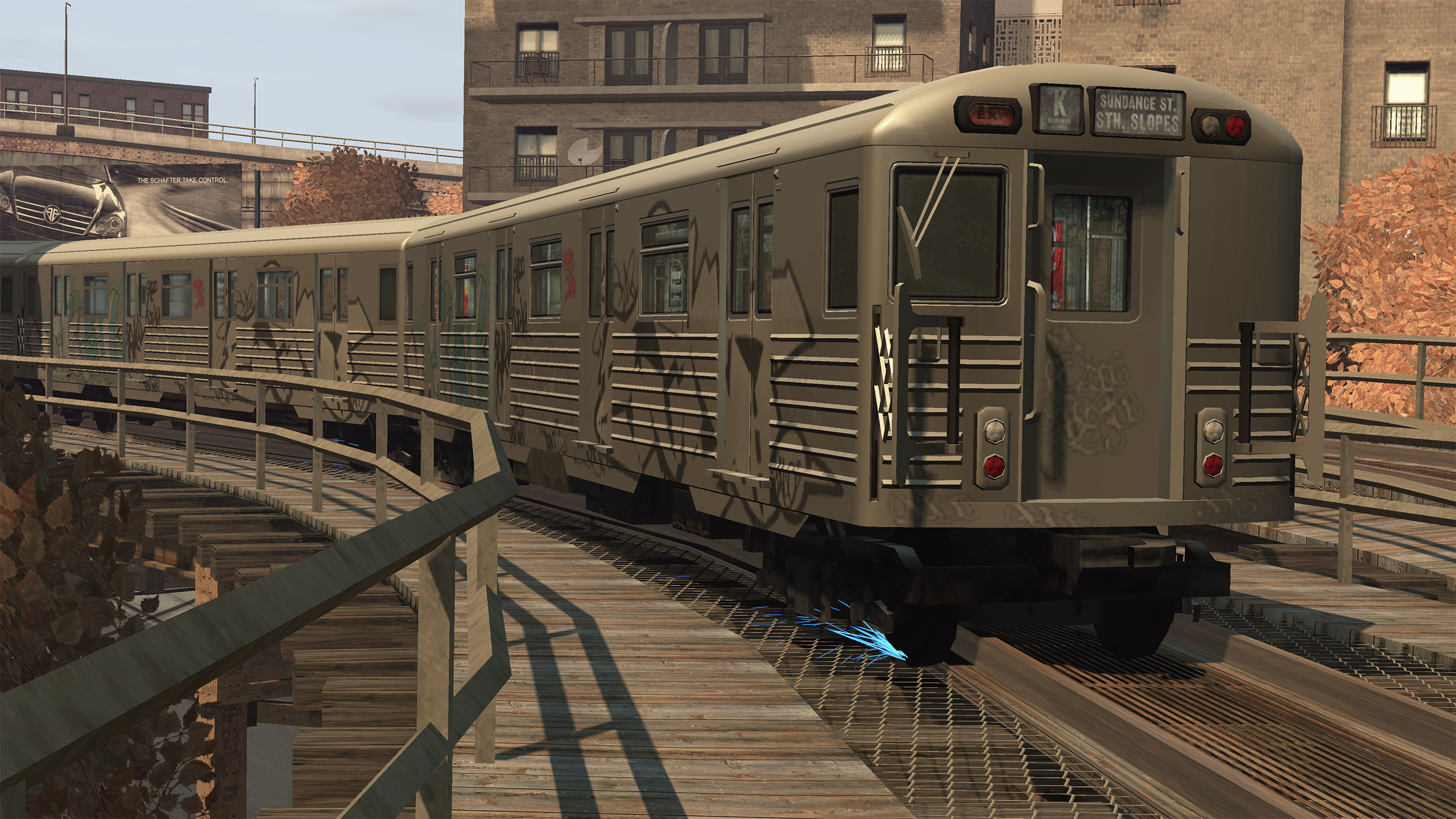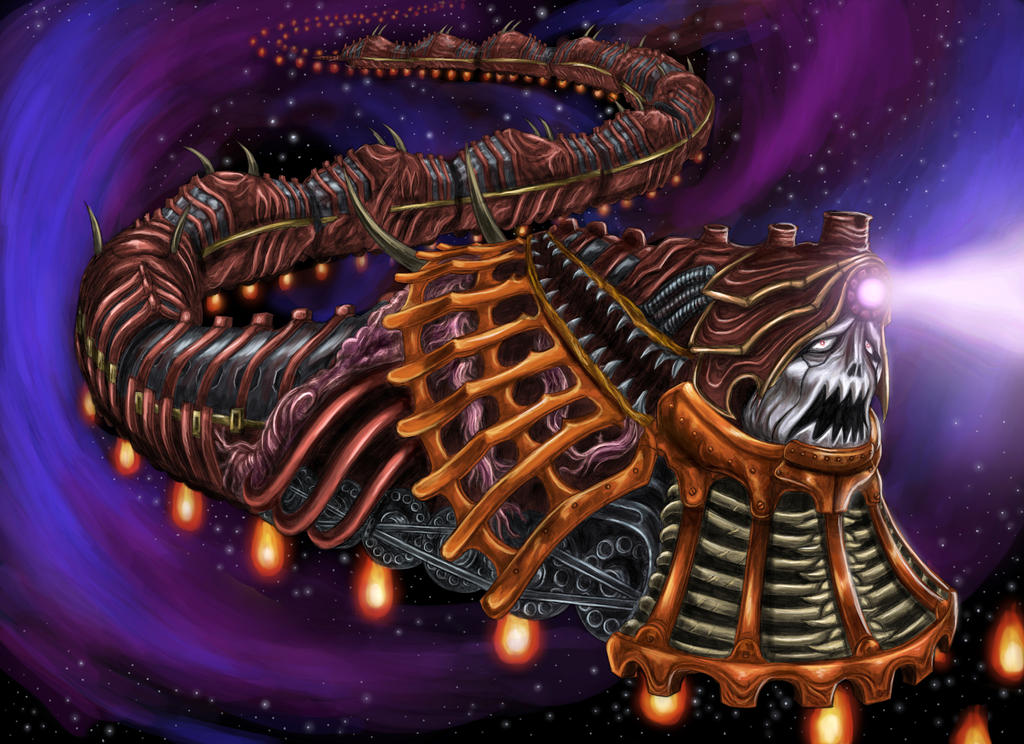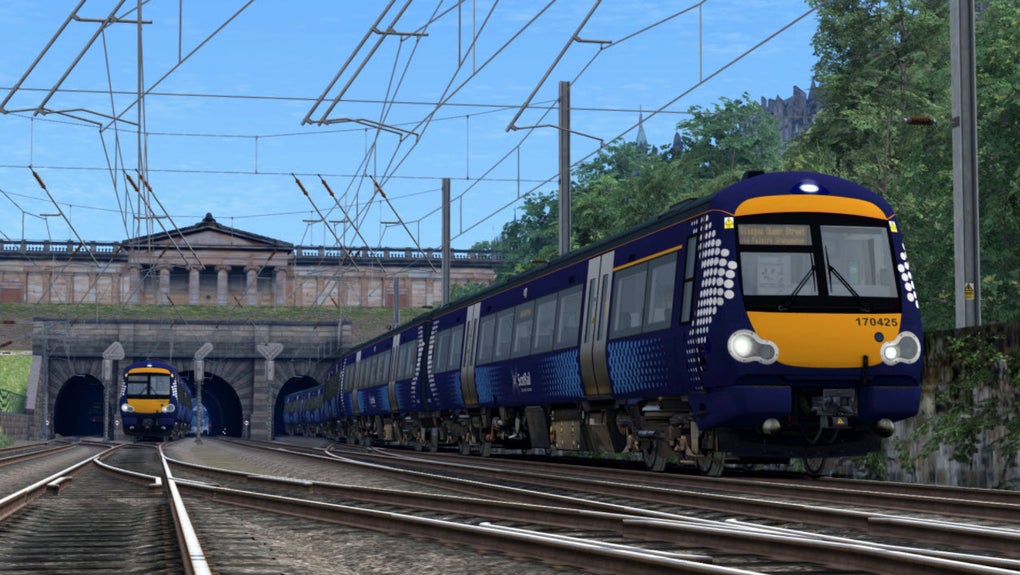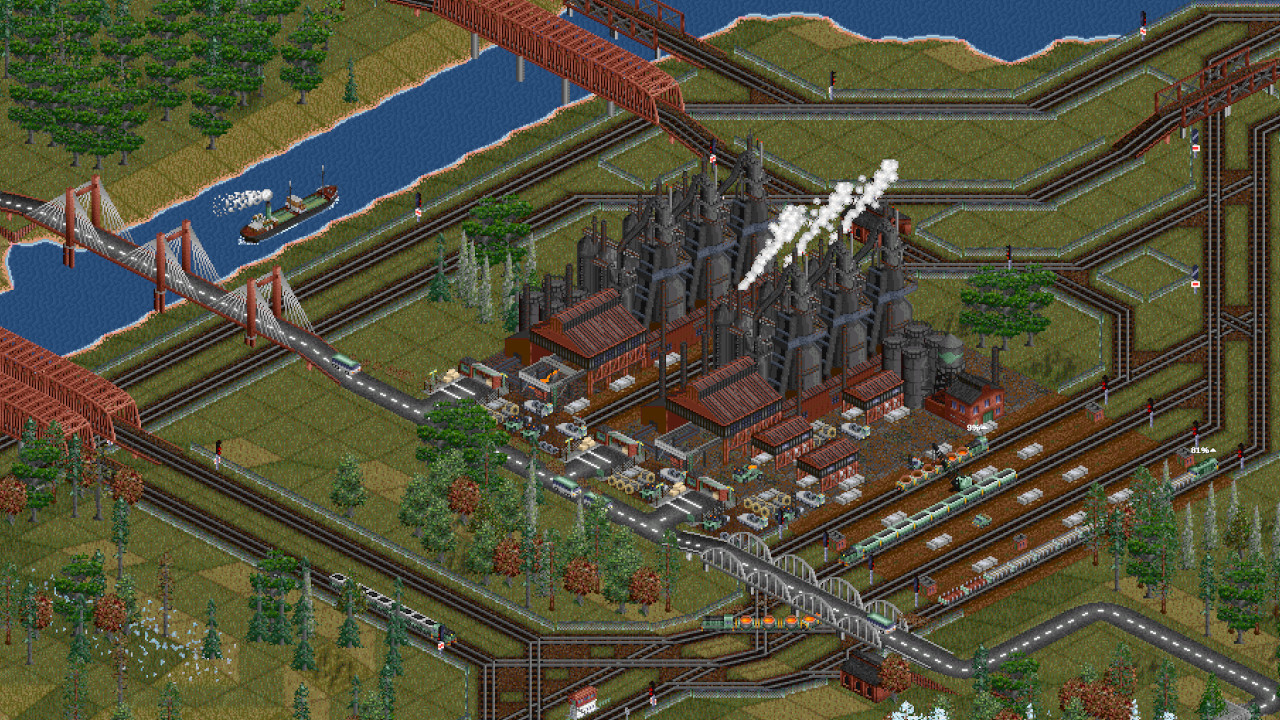T R A I N S 🚂🚃🚃🚃🚃🚃🚃🚃🚃🚃
For this month, I had a very meaty article planned about the imaturity of videogame criticism when dealing with metacomentary, but I've had a very crappy month, so I decided to do something lighter and more fun.
I like trains!
Here are some ways trains show up in games.

Trains as Metaphor for the Ever-Consuming Maw of Late Stage Capitalism
No, mate. I said I want something lighter and more fun. Let's, at least, work up to it?
Trains as Transport
Now that's better.
Trains are a mode of transportation, so it makes sense that they are mostly seen as a way of transportation, yes? You wait at a station, a train arrives to pick you up, and shortly you are elsewhere.
And yet, this is one of the most elusive ways trains are shown in games. I can recall very few in which you just wait for a train somewhere and then ride it somewhere else.
Banjo-Tooie was one of the few in this category. In it, you could open up train stations to travel between levels. They were necessary to solve puzzles, and in one stage, Grunty Industries, entering the level only actually let you unlock its train station, after which you had to take the train to access the rest of the level. It was a very interesting setup, but very trainlike, since you only got on a train and appeared on the destination. I remember the train animation had the wheels skidding to give the train a bit more of a trainlike feel, since otherwise it'd just disappear into a tunnel.

The most trainlike experience I've had in a game was when I decided to play The Ballad of Gay Tony, a self-contained DLC for Grand Theft Auto IV, without commiting any grand theft auto. This seemed like it was very doable, since the DLC's protagonist Lopez lives in an apartment almost on top of a metro station, and the game's city has a curiously comprehensive urban transport network. Also important: unlike the main game, the DLC starts with the entire city unlocked, so I wouldn't get the police on my tail for riding the train, like it happens in the base game.
It certainly gave me the experience I was seeking, for better of for worse. One thing I noticed is that usually a train would approach the station within a minute of the player entering, but not with the one station that was closest to Lopez' house. I always had to wait almost five minutes. I figure that it was because there's another station nearby and the game mistakenly sends the train to that station instead. The point is that, while playing the game like that was a good exercise in pushing Rockstar's weirdly broad world simulation to its limits, and I enjoyed the experience, I also lost a lot of time in a videogame pretending to do something I lose a lot of time doing in the real world.
Train as Vehicles
Isn't that the same thing as 'trains as transport'? No. For this category, I mean trains as something that you drive. Trains are mass transport, and since they follow set lines it literally makes no sense to be the one driving it to your destination. Yet, videogames are the genre that always have you be the protagonist, so why would it be different in this way?
The prime game in this category is The Legend of Zelda: Spirit Tracks. Which I haven't played. So there.
My most powerful memory in this category is from Body Harvest, which I talked about not long ago. It has trains, and deals with them in a simple manner: they are vehicles that cannot be steered, and the one level in which they show up has train stations directly in front of each train you can drive. (There are only two.) This way the train can be a powerful beast, but limited in its scope. In high school, I thought this was the coolest thing until I told a friend about it and he was nonplussed. "Can you at least use a switch to change the rails you go through?" You cannot.

Trains as Destruction
Trains are sometimes seen as a tool of massive destruction in games. In any sandbox game in which there's a train, there'll almost certainly be a mission or side mission in which you must place something in front of a train to destroy it. And, of course, there's the really weird summon from Final Fantasy VIII that's just a train.
Man, why do we see trains like this? The things only move alongside a track, and usually at preset, predictable times. And still, they occupy a space in our consciousness analogous to natural disasters. The first moving pictures were made about trains crashing, but at least it was only because it was difficult to shoot a hurricane in those times.
Trains as Liminal Spaces
I mean this is a literal sense, not the spooky sense. Trains are transient places that only exist to take you from a place to another. This gives them a unique vibe that's a good way to break up the pace in a game. Maybe it brings up a bizarre dungeon, like when you had to hijack the train to the afterlife in Final Fantasy VII. (Yes, that's a different Final Fantasy.) Or maybe it lets an epic quest simmer down, like when you have to solve a cozy train mistery in Paper Mario: The Thousand-Year-Old Door. Since many games are about exploring or existing in a space, trains can give you a very good excuse to limit or change the rules.

Trains as Simulation
Train simulators are an intensively well estabilished genre. Work is play for people who don't work.
I love trains, but I am generally kept away from them by their fastidiousness and slavish adherence to reality - that, and the fact that many of them are not very well programmed. I might be playing World of Subways 3 a lot more if it didn't have a bug that crashed the game whenever I fail, which makes the tutorial unusually challenging.
The thing that very nearly burst out of the bubble was The Holiday Express, a standalone add-on for the long-running Train Simulator series that used its mechanics to have a lil' toy train putter around in a living room. It was lovely, fun, quick, and didn't force you to spend the entire hour-and-a-half journey between Birfgmanshire and Bloingtoomph-on-Slop. They even released a sequel the next year, spooky-themed The Count of Mount Disco for Halloween, but it didn't click with me, and I think it didn't click with a lot of people, because it was the last one.
I'm not the first one to wonder if a 'casual' version of Train Simulator, decreasing distances the way Truck Simulator does with its continents, would be a massive hit.
Trains as Development
The other well estabilished, train-centered genre is the transport simulator. Transport Tycoon Deluxe is the poster boy for the genre, having an open-source version being still actively developed today. Still, there are many games in the genre; from the cozy and puzzly Train Valley to sprawling sandboxes like Transport Fever; from those focusing on cargo like Sid Meier's Railroads! to those focusing on urban transport like Cities in Motion.
The one thing they all have in common is: they're all about the money.
Yes, all the way to Transport Tycoon, in which you didn't just connect cities with your pretty rail lines, you also bought industries in them to create demand for your own routes. What was that I was talking in the beginning of the article about capitalism again?

Trains as Metaphor for the Ever-Consuming Maw of Late Stage Capitalism
I guess we've worked up to this.
If I had one penny for each game in which trains were an out-of-control beast that devoured the track in front of it and killed you if you failed to keep it appeased - well, you know how the meme goes. There are two games, one of them being Unrailed and the other being Tracky Trains.
Unrailed is a very fun party game. It happened to be on a free weekend the day I had my online birthday party, and three of my friends gathered to play. I and two of them bought the game on that weekend's sale; the fourth, after playing for a few minutes, asked us, very seriously, if we were actually enjoying the game or were just pretending to to prank him.
In Unrailed, a train moves forwards, inexorably. You must build a track for it. It carries a little factory, into which you must feed rocks and wood to create tracks, which you must place in front of it. To get the wood and rocks, you must chop down trees and tear down, well, rocks in the level, and also create a path for the train.
It's super fun - and also a bizarre engine. The train moves by itself. You must build a track for it, for no reason. It only carries the tools that enable you to build a track for it. Its purpose is merely to be, to move forward.
Tracky Train, a single player mobile game, is quite similar in that regard. You drive a minecard that magically lays down tracks for a train that follows you, also inexorably. It only stops for two things: to allow passengers in, and to let them out at a station. You must lay tracks carefully, in a narrow level, making sure to have it stop constantly, as well as taking care so it never loops on itself too tightly. Your passengers make a disappointed emoji face if you fail to pick them up, even though they were waiting for a train in the middle of the field.
Am I looking too much into these games to see them as metaphors for capitalism, destroying the world and bringing stress to those in it for no purpose other than its own maintenance? Oh, yes, you can bet your ass I am. These are cute games that are the nice kind of stressing, they're not marxist screeds. But, you know, the things we create in the world are the things that are already there. And we know that trains are one of the first children of the Industrial Revolution; that the modern industrialized world started with the iron of its rails, and that our climate catastrophe started with the smoke of its chimneys. Sometimes, even when you're making a fun game with penguins, that comes through.

Trains as Just Like One Level That's Somewhat Narrow
One of the levels in Goldeneye 64 is called Train. I remember making it to the end, when the train crashes, and going like, 'oh, this level was supposed to be on a train, innit?' Blood didn't make a level in a train that ran over zombies so you could deliver such a pitiful spectacle, Goldeneye 64.
October's Link Roundup
Early Collaborative Games of Fantasy and Imagination
I love learning about the history of seemingly modern ideas and finding that they actually date back millenia. Tabletop RPGs are usually considered to have been created by Gygax in the seventies, with some people finding the earliest precursor in H. G. Wells' Little Wars. This website works to dispel such notions, finding several precursors centuries prior, in the format of 'parlor games' centered on story improvisation, many of which have mechanics resembling modern storygames. The fact that they are also quite similar to Baron Munchausen, a game which claims to have been written in the 16th century, is the cherry in the cake.
The terrifying tale of LOAB, the first "AI Cryptid"
Yeah, I know linking Twitter threads is terrible, but this one - about how a researcher on AI-generated art found a face that AI consistently reproduces, and almost as consistently reproduces in terrifying environments - is definitively worth the hassle.
Guillermo del Toro says he saw a real UFO and it was ‘horribly designed’
Imagine travelling to a distant world only to have your design sensibilities roasted.